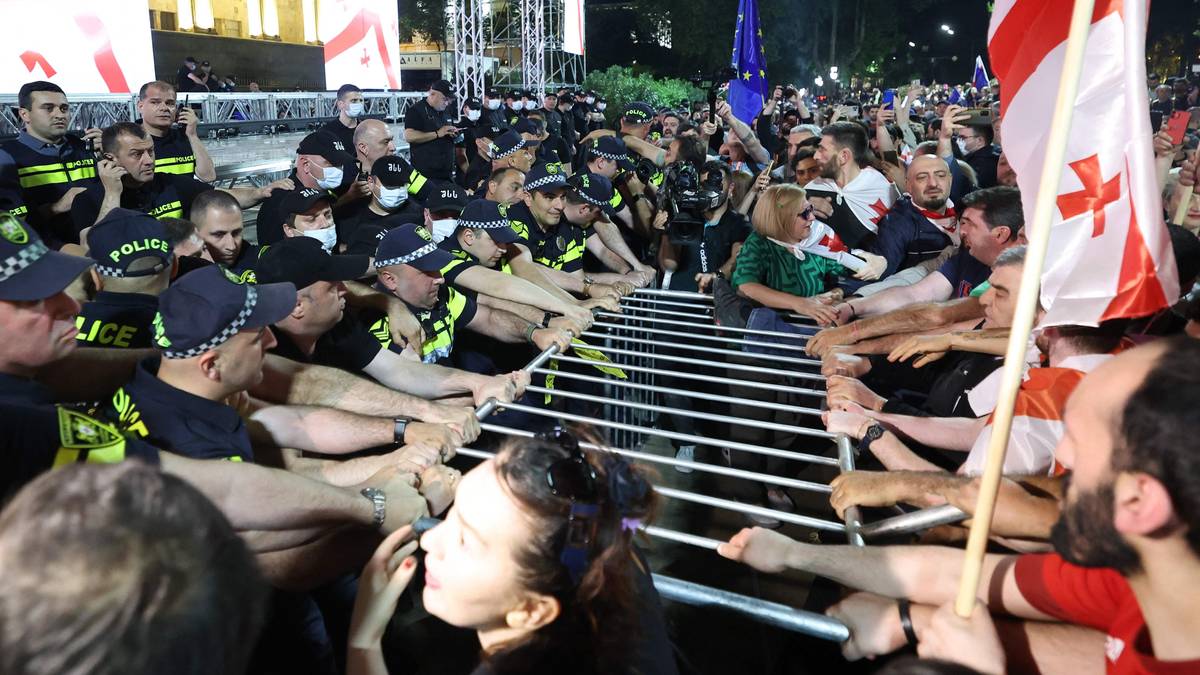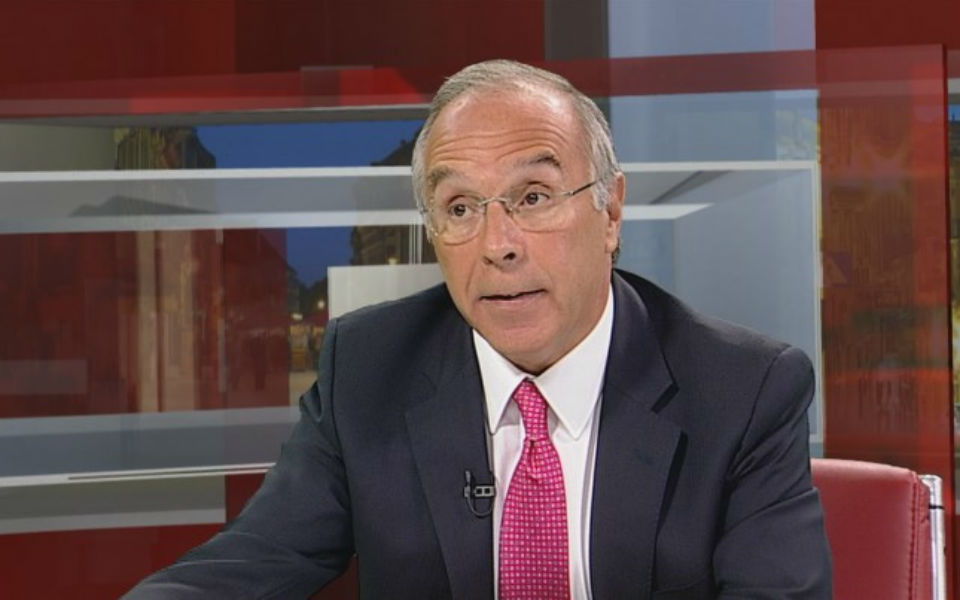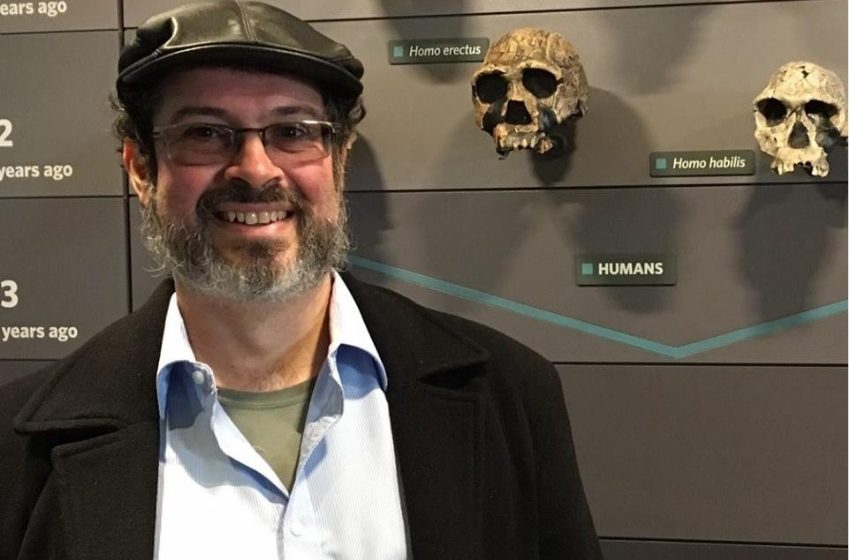Journalist and editor-in-chief of Revista Questão de Ciência, Carlos Orci, talks about his latest book, Negation and the Challenges of Science, and the characteristics of current denial movements
by A.D. Luna
“Denialism, that is, the attitude of rejecting facts and facts from science and real life, has accompanied man since ancient times. In the last century, it was adopted not only by groups on the fringes of society, but was adopted as a strategy by representatives of powerful economic and political interests. When you attack science, Denial plays dishonestly upon the doubt and uncertainty inherent in the scientific process.”
Text above by Carlos Orsi, guest Issue 35 of the show InterD – Science and Culturebroadcast on Universitaria FM do Recife Available on major streaming platforms. Orsi talks about his latest book, Denial and the Challenges of Science.
Carlos Orci is a journalist, writer and editor-in-chief of Revista Questão de Ciência, published by Instituto Questão de Ciência, of which he is one of the founders and director. The IQC Center is headed by Natalia Pasternak, who has a Ph.D. in microbiology from USP and popular science.
He has worked in science communication for nearly 30 years, and was one of the pioneers in developing science publishing materials for the Internet in Portuguese in Brazil. He is an author of fantasy, science fiction, horror and mystery books, mainly science publishing “under a skeptical and critical bias”.
And what does that mean?
Orci states that it is possible to promote science of high quality only by discussing and presenting the beauty of science, explaining how stars generate energy and so on. But for him, it is also necessary to present how it works, to expose things that claim to be science, that you want to have the prestige of science, but not pay the price, not do the necessary work to be true. Validated as science.
Listen and read the interview with Carlos Orci.
Listen to “A Chat from a Scientist to a Journalist, with Marcelo Chapeau – #38” on Spreaker.
INTERD – What prompted you to write the book Negativity and the Challenges of Science, and in general, how is it structured?
Carlos Orsi – “Denialism and the Challenges of Science” published by Editora de Cultura is short, straightforward, and very dry. Essentially, it is a book that deals with denial, as the title says, under historical and psychological biases. Why do people fall for this stuff, what do I eat, what maneuvers, marketing tricks do denial promoters use.
And philosophically, because deniers often use details, taken from the philosophy of science itself, to try to make their positions sound, seem plausible, or that they suddenly deserve to be taken seriously, etc. I had already written, in partnership with Natalia Pasternak, Against Reality, which already dealt with denial, but with specific cases: denial of global warming, the Holocaust, and so on.
Denialism and the Challenges of Science, which I wrote on my own, deals more with the theoretical part of denialism, so to speak. How is denial done, how is it organized and what kinds of tools, weapons and denial promoters are used by denial promoters to reach people’s minds.
INTERD – In general, what characterizes denialism in our time?
Carlos Orsi – Denial has always existed, it is part of human nature. In this book, I list some examples from classical literature, from the historians of ancient Greece and Rome, who actually discovered this kind of phenomenon in their society.
But I believe that contemporary denialism has three main characteristics. First, especially with regard to science… The old denial was more, shall we say, historical or even political: people who refused to accept that their country had lost a war or something. Nowadays, denial turns more to scientific facts.
The second issue of contemporary denialism, though scholarly, is that it is too politically extreme. Let’s take a very cartoonish negation: the one that denies the shape of the Earth. There would be no reason for flat-earthers to be right or left or have any kind of political sentiment. But nowadays, we have a very politically radical denial of scientific facts.
A third very specific feature of contemporary denialism is that it feeds on itself. What do I mean by this? In the 1950s, if you were a flat person, life would be a bit difficult, people would think you were weird, you would have trouble finding friends, and you would feel like a fish out of water.
It ended up pushing denialists to the sidelines. They didn’t have social media, either way. In the most general sense of the word, people who organize themselves, and those like Twitter, Facebook, Instagram that we have today.
For now, denial has moved from the margins to the center of public debate. They are more influential, and are no longer just an eccentric group that does not influence the direction of society. And given the possibilities that social networks open up, today’s deniers no longer need to feel marginalized.
They form their own groups, organize themselves into so-called echo chambers and many of them are unaware, perhaps, that they are outside the mainstream of public opinion, outside the scientific consensus, etc.
intrigue – Why does denial attack science in this way?
Carlos Orsi – I wouldn’t say science is being attacked by denialism, I guess Science is disputed by denial. they say [por exemplo] That the real science of vaccines is not the one that appears in major scientific journals, promoted by health authorities, and published by the press.
They argue about what “real science” is. They want to earn the title of “forensic science” for themselves. But this is clearly not the case, because the academic, scientific and political authorities, who end up deciding which science deserves to be taken seriously, do not take their own seriously.
Then they fall into huge conspiracy theories which include Big Farma, Big Business, Big Space in case of flat earthers etc.
So I think they are not attacking science. They acknowledge the authority of science, and they know that thing [considerada] Knowledge has value. [Portanto] What they want is to appropriate that value for their beliefs.
intrigue – How are denial and pseudoscience related?
Carlos Orsi – This is something that has a lot to do with what I said earlier. Deniers contradict science, they want to seal the quality of science to their beliefs.
Which is exactly what pseudoscientists have always done. Pseudoscience is born and raised when science becomes a social value. When people, society, governments, populations, and public opinion begin to consider that being scientific is something worth taking seriously, important, makes more sense to believe in than to doubt, and so on.
So, when that scientific label takes that power, that halo, pseudoscience comes along wanting to label its beliefs, for itself, without doing the work, right? Without making an effort to be truly scientific, to analyze evidence unbiasedly, produce empirical results, analyze data impartially, look for alternative explanations. All the hard work of making and producing science.
Pseudoscience has already reached its conclusion and wants that conclusion to be considered scientific. Regardless of the evidence and whatever the facts say.
And denial, when it gets into the story of wanting to discuss naming science, does the same. In fact, it fuels and promotes pseudoscience.
INTERD – Because of the actions of leaders and followers of politicians like Trump, Orbán, Bolsonaro, and others, scientific denial is more associated with the right. But is there a scientific denial on the left? How is negation manifested in the political sphere?
Carlos Orsi – Scientific denial today is closely linked to political sentiment. Even because of this issue of the social value of science. I mean, a ruler who ignores science, makes decisions contrary to scientific facts, is seen as a bad ruler, like a mad ruler, a man who doesn’t know what he’s doing, irresponsible.
Saying that science agrees, that science supports, that science supports, what your leader promotes, what he does becomes part of the discourse of political legitimacy.
Therefore, when denialists enter into the dispute for the scientific designation, the right to consider themselves scientific, and consider themselves in favor of science, they do so precisely in support of the leaders and ideology.
This happens on both the left and the right. Classically speaking, denial has always been associated with the left [aqueles] against the safety of biotechnology. (It’s not that all biotechs are automatically born safe. But after they’ve been created, studied, analyzed, put through tests, and come to the conclusion that they’re safe, there’s no reason to get around spreading panic, that this GM Tomato is going to turn you into an ET or something.)
The left—or sectors of it, not the left as a whole—has always had great difficulty accepting that some technologies are useful, necessary, and safe.
Even the classic anti-vaccination movement in the United States, where it has existed endemicly for several decades, has traditionally been a denial associated with progressive sectors, which are considered more to the left of society.
The rightward migration of the anti-vaccination movement is a phenomenon that is already being studied and is intriguing.
Finally, what is happening… (and I find it disturbing in practice and interesting in theory) is, in effect, a convergence of denials on the fringes of the political spectrum.
Some time ago, a study of conspiracy theories, which are always so close to denial, was published about the prevalence of conspiracy theories across the political spectrum. What the researchers found was a U-shaped curve, meaning that belief in conspiracy theories is high at both ends of the political spectrum and decreases towards the center.
I think this U curve shows that denial and conspiracy are not the preserve of one ideology. They become dangerous when ideological extremism comes to power, because extremists come with their own crazy theories and denials. But you can’t blame all the evil of denial on the right.
What happens is that, as the story progresses, sometimes it’s one group that has more power, has a higher chance of doing harm, and sometimes it’s another group. We are at a point in the history of the West, Europe, and the Americas where the right has a major overthrow (the right until very recently, right? Trump and Bolsonaro left power not so long ago), more conditions to do damage. Denial on the right is the one most likely to do harm. If the wheel of history turns, leftists might.
We have to watch everyone.
INTERD – Well, thank you very much, Carlos Orci, for your participation. Tell us how people can buy your book.
Carlos Orsi – I wanted to thank you for the opportunity to be here and talk to you and the listeners. My books are for sale, as they used to say in the good houses in the field, nowadays you may say in the good spots in the field. Both my own singles and those I wrote in partnership with Natália [Pasternak].
The most recent of these, “Denialism and the Challenges of Science,” has yet to exist as an e-book. But the hard copy is easy to find, if not in your physical library, then certainly in your favorite virtual bookstore. And again, thank you very much for your interest in my work and for the opportunity to speak with you.
See also
“Science is not a matter of opinion,” Carlos Orci explains
Traditional Knowledge: Why Don’t Scientists Trust It?
Carlos Orsi says that religious phenomena are treated with special tolerance and condescension

“Wannabe internet buff. Future teen idol. Hardcore zombie guru. Gamer. Avid creator. Entrepreneur. Bacon ninja.”







More Stories
Men who use Ozempic report sexual side effects. Understands
Parque Santa Rosa hosts the Mobile Science Travel Laboratory on Monday (29) | North Fluminense
Alentejo Science and Technology Park opens “immersive rooms”